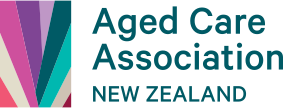5 July 2022
Increased severity of illness in older people entering aged care, increased care costs and serious inequities in access to care highlight a sector in crisis, according to new research from the New Zealand Aged Care Association.
The report Supporting equitable and timely access to aged residential care, analyses anonymised 2020/21 data from InterRAI, the mandatory clinical assessment tool for aged residential care and home and community services for older people.
It aims to assist the newly created Health New Zealand/ Hauora Aotearoa and Māori Health Authority / Te Mana Hauora Māori in their goals of improving both equity and access to healthcare for New Zealanders.
Simon Wallace Chief Executive of the New Zealand Aged Care Association says the data shows that change is desperately needed to ensure a future of equitable and timely care for New Zealanders as they age.
“Many older New Zealanders are waiting too long to access the care they need, and access to that care is dependent on where they live. This is leading to serious inequities both for an older person’s health and wellbeing and for viability of the facility providers.
“We have a situation where some providers are having to provide unfunded hospital level care to individuals put in rest-home level beds, either because the District Health Board is only funding the resident for rest-home level care when they need hospital-level care or there are no beds available that are certified to hospital level care.”
The research updates and compares with previous analysis in the NZACA 2018 report Caring for Our Older Kiwis.
It shows that while use of interRAI by DHBs is mandatory to assess older people’s care needs, its use is not only increasingly inconsistent, but has declined across DHBs over the last four years – from 13.6 percent of those aged 80+ receiving assessments to 11.2%.
“This is contributing to the postcode healthcare lottery that way too many people are experiencing. It also is a serious impediment to nationwide studies of equitable access of older people to the care they need whether in a facility of home setting.”
The NZACA is calling for a nationally standardised process and criteria for determining eligibility for ARC that is used in a consistent way across every region in New Zealand.
Carriann Hall, Chief Executive of the CHT Healthcare Trust, which funded the research through is CHT Aged Care Fund, says that at the same time as the new health system is being established, our aged care sector is in crisis.
“Funding disparities and immigration settings are contributing to staffing shortages which put further pressure on a system already trying to manage the fact that, as confirmed in this report, residents are entering ARC in greater need.
“We cannot rely on market forces alone to drive the provision of aged care beds and determine who has access to them.”
Meanwhile the research reinforces the benefits of ARC shown in the previous study, demonstrating the significant improvements in the health and wellbeing of older people in the six months after they entered an aged care facility.
A total of 95.9% residents report either improved or sustained levels. In addition, 74.7% of people showed an improved overall health stability score, with 92.5% reporting either improved or sustained levels.
Additionally, the analysis reinforces previous results showing the significant reductions in loneliness for people entering ARC. Of those who reported being lonely at the time of their final home care assessment, 82% reported not feeling lonely after around six months of aged care.
“This is very encouraging especially against the backdrop of Covid-19 restrictions and stringent health measures to ensure the safety of older residents. It is a testament to the creativity of our providers that they have continued to ensure their residents are well supported socially during the pandemic.
“Ultimately, behind the numbers and percentages presented in this report are lives. The lives of our most vulnerable New Zealanders. They are our parents, grandparents, great grandparents and they have made a contribution to New Zealand through living and working here and raising families. How we treat our older New Zealanders reflects on our values as a nation.
“As a sector and on behalf of all New Zealanders, we see potential for a better future and sincerely hope Health New Zealand and the Māori Health Authority will take on this comprehensive data to ensure they meet their goals of improving both equity and access to healthcare for New Zealanders.”
ENDS
Please direct all media enquiries to Alice Taylor, 021 02785648.


